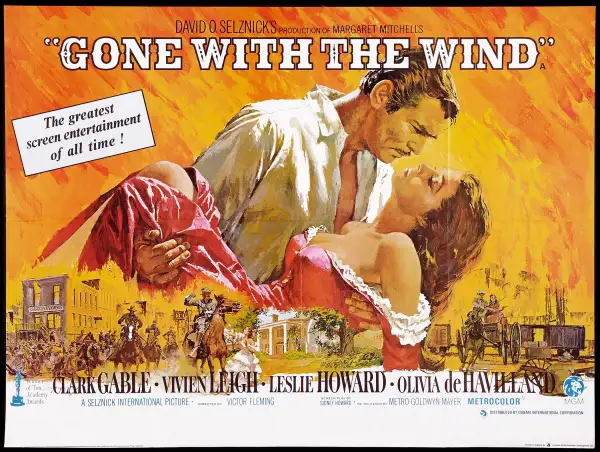5 Money Lessons From Scarlett O'Hara

This weekend, Gone With The Wind, the best-selling novel by Margaret Mitchell, will celebrate the 80th anniversary of its publication in 1936. Even eight decades after its release, the Pulitzer Prize-winning novel has continued to capture the imagination of viewers with its stark portrayal of the fall of the romantic Old South and the tortured romance between colorful central characters Scarlett O'Hara and Rhett Butler. The 1939 Oscar-nominated film based on the novel, starring Vivien Leigh and Clark Gable in the lead roles, is often cited as one of the best films of all time.
While many of their friends in the novel are caught up in the doomed quest to preserve the plantation way of life, Scarlett and Rhett have more practical considerations on their minds. "All wars are in reality money squabbles," Butler observes, to the chagrin of the Southern gentlemen in the room. But as the novel—and the conflict—progresses, it's the financial common sense that he and Scarlett demonstrate that allows them to emerge from the war with their finances intact.
Here are some key takeaways about money that we can learn from the lead characters in Gone With The Wind.
1. Don't act against your financial self-interest.
Of course, all your motives shouldn't be mercenary. But Scarlet and Rhett understand, long before many of their friends and family, that the Civil War is a fight that the South cannot win. Its cotton- and slave-based economy can't survive against the North, whose economy is bolstered by manufacturing and trade with other countries. Ultimately, many of their friends lose their lives fighting in the war, and those who survive are left impoverished. Even Ashley Wilkes, Scarlett's long-time love, realizes that fighting to maintain the old system is a fool's errand, yet he persists. His decision, if not for Scarlett's financial help, would have left him without a penny to his name. When you make decisions about your financial future, make sure you're thinking prudently about the consequences of your choices, and don't let emotions or ideology guide your actions.
2. Don't let others define your odds to succeed.
When Scarlett takes over the running of second husband Frank Kennedy's store, she faces ridicule for taking on a man's job. Indeed, the narrator describes Scarlett's own reaction to the realization that she could run Frank's business better than he can: "A startling thought this, that a woman could handle business matters as well or better than a man, a revolutionary thought to Scarlett who had been reared in the tradition that men were omniscient and women none too bright." Even after Scarlett's business success inspires more envy from her neighbors, she ignores their naysaying and continues to excel at her job. Then as now, the best advice is to not let others' opinions determine your success at work.
3. Take advantage of money-making opportunities as they come along.
Instead of heading to the front lines like his fellow Southerners, Rhett chooses to work as a blockade runner, breaking past both the Union and Confederate blocks on ports to smuggle in food, clothing, and other necessities to besieged citizens at home. After the war, Scarlett sets her sights on Frank, her sister's beau, because he has the money to provide for her family. Later, she expands his fortune by taking over the store and opening up a sawmill using a loan from Rhett. Even characters like Ashley are not without opportunities after the war. But when Scarlett gives him a leadership position at the mill, he doesn't bother to learn how to succeed in the business and ultimately loses some of his benefactress' money. His inability to adapt to changing circumstances leads to his financial ruin. While many of their friends struggle to make ends meet, Scarlett and Rhett become ostentatiously wealthy by the end of the novel. We're not suggesting you resort to less-than-honorable means to accomplish your goals, but don't ignore opportunities to better position yourself for a raise or a promotion at work, whether it's by networking or learning a new skill.
4. Disregard financial prudence at your peril.
Financial prudence is a lesson the former plantation owners must learn the hard way after the war, when they become unable to afford many of the extravagances they had enjoyed in the antebellum era. Yet some, like the Wilkes family, still stretch themselves beyond their means, for example by supporting Ashley's unmarried sister India without asking anything of her in return. Indeed, those characters in the book who do not learn how to live with less money find themselves in a struggle for survival. Today, learning to live within your means is still an invaluable skill.
5. Learn to make the best of what you have.
In a famous scene in the movie (and in an equally famous parody), Scarlett visits Rhett to ask for money wearing a dress made of the green curtains that used to hang in her window, trying to maintain the illusion of grandeur despite privation. Similarly, throughout the novel, the Southerners learn how to scrimp, refashioning old clothing and making do with simple food. It remains true today that learning how to stretch your budget will serve you well in the long run.